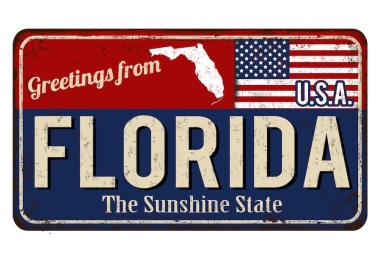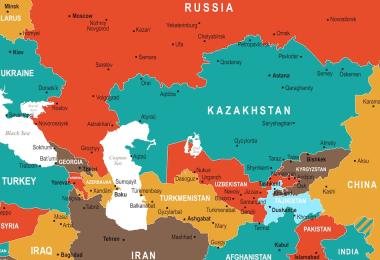Having sold 24,000 bottles of natural wine in 2017, an average of 500 bottles a week, Bar Brutal has reconfirmed its status as Barcelona’s key point of reference for natural wines. A brutal — a colloquial Spanish word for mind-blowing or amazing — sales figure indeed.
On a Friday evening, the ebullient atmosphere of Bar Brutal is just on the right side of chaotic. Fish and chicken heads are among the surreal sculptures that leap out from the walls; a cow’s horn, symbol of biodynamic production, wears a chef’s hat. Bar Brutal buzzes with the beau monde of Barcelona; models, artists and tourists, generally aged 30 and over. It is not only natural wine aficionado hipsters who drink here.
Since the opening of the bar five years ago, Barcelona has transformed itself into Spain’s undisputed capital of natural wines, largely thanks to the commercial efforts of Joan Valencia, founder of Cuvée 3000, Spain’s leading natural wine distributor and co-owner of Bar Brutal.
A catalyst
Valencia, a former banker, opened Bar Brutal in 2013, together with his business partners, the Colombo twins. At the time, Cuvée 3000 distributed a handful of French and Catalan natural wines but with the presence of Bar Brutal, natural wines have flourished; they now account for about 70 percent of the company’s catalogue of 900 wines, and between 35 percent and 40 percent of its total number of bottles.
In 2010, when L’Anima del Vi (the Soul of Wine) Barcelona’s first natural wine bar opened, Valencia mentioned the Bar Brutal project to new employee Jerome Siffermann, who, as a buyer for Cuvée 3000, would become Valencia’s right-hand man. “Our natural wine sales really started taking off once Bar Brutal opened in 2013,” says Siffermann, speaking at Cuvée 3000’s head office in central Barcelona.
For Cuvée 3000, Bar Brutal serves as a testing ground for wines and helps the company to manage allocations from producers. “Bar Brutal has provided natural wines with visibility; its commercial success has allowed us to prove to potential clients elsewhere who were unsure or reticent about natural wines, that there was a growing thirst for them,” Siffermann explains.
He says Bar Brutal has enticed a new generation of wine drinkers and restaurants to embrace natural wines. Alongside its neighbour and arch rival L’Anima del Vi, Bar Brutal has been a catalyst for the opening of several new natural wine bars and for the move by restaurants, including El Celler Can Roca, to embrace natural wines.
Window to profitability
Wine distribution to Bar Brutal, to restaurants and independent merchants has certainly paid off. In 2017, Cuvée 3000’s annual turnover increased by 20 percent to €6m ($7m), its annual turnover was €5m in 2016 and €4.5m in 2015. All profits are reinvested in the company. “The rise in turnover was triggered by a veritable explosion of demand for natural wines, coupled with growth in local wine consumption,” says Siffermann. “The demand for natural wines has also been buoyed by the recovery of the local economy and the Eurozone last year.”
After 20 years of trading and 10 years of natural wine sales, the company has 25 employees, including two sales agents, one in Madrid and one covering the rest of Spain, and a driver for deliveries.
Valencia, Cuvée 3000’s main shareholder and founder, owns more than 50 percent of shares of the company. Following the departure in 2007 of Valencia’s initial associate, Enric Segarra, Valencia opened the company up to new investors, who include friends, several local wine producers and clients. He says the company now faces some of the challenges associated with growth: more employees to manage and the quest to encounter more producers to ensure a balance in the supply and demand ratio.
Siffermann adds: “Natural wine producers tend to make small volumes of wines and our natural wines sell out in the year they are released; some allocations for producers like Bodega Cueva in Valencia sell out before they are even released.”
Cuvée 3000’s steady growth has led to several approaches from companies and individuals hoping to acquire it, all of which have been rejected. Despite some of headaches associated with day-to-day management, any sale of the company has, for now, been ruled out. “Our objective now is to sell only natural wine,” says Valencia. “I would like to do this, but at the moment we can’t do it for commercial reasons.” He admits that despite the surge in demand for natural wines, there are still some clients who are reticent about making the switch from conventional wines to natural wines.
Spain goes natural
Natural wines in Spain sell in line with premium conventional wines, with a trade price of about €7.00 and a retail price of between €13.00 and €25.00 per bottle, but some of Cuvée 3000’s conventional wines are volume-driven and sold at €4.00 per bottle. By number of bottles, the majority of Cuvée 3000’s wines are conventional wines. All its conventional wines are made from organic grapes — without organic vinification — in larger volumes than natural wines.
Increasingly, numerous natural wine producers in Spain do not want to be associated with nor pigeonholed by the term “natural” because there is no legal definition for this. Many prefer the term “artisanal”. Whether they are natural, artisanal or naked wines, Valencia likes producers who show transparency in their production. However, he’s not a sulphur-free fundamentalist and understands why some natural wine producers put a small amount of sulphur in their wine prior to bottling.
Playing down the issue of mousiness apparent in some natural wines, Valencia says it “dissipates within a year of bottling”, adding: “No one knows where it comes from, but it tends to occur in (milder) wine regions that produce wines with lower acidity.” It would be hard not to be convinced by clean natural wines such as Xarel·lo Sur Lie 2011 made by Ton Rimbau, a complex wine that shows the ageing ability of Xarel·lo, a Catalan grape variety which has enjoyed a major renaissance in recent years as a still wine.
In Catalonia, producers are celebrating the re-emergence of Ancestral method sparkling wine and the renewed production of further local grape varieties such as Sumoll. Among the dozens of natural wines producers in Catalonia are Partida Creus, a producer that now exports to 19 countries.
Cuvée 3000 sells 75 percent of its natural wines in Catalonia, with other sales going to the Basque Country, Galicia and Madrid, where the company held its first tasting event in March this year. Madrid is slowly picking up on the natural wine curve. Siffermann says Cuvée 3000 was pleased with the reception it received in Spain’s capital city but adds that, generally, Madrid has a much less-developed wine culture compared with Barcelona. Ironically, that’s despite it being the capital city of the one of the world’s largest wine producing countries. Regarding total sales — conventional and natural wines combined — Catalonia accounts for 50 percent of sales, with rest divided between Madrid and the rest of Spain.
Bright future
A key factor in Cuvée 3000’s successful development is the company’s pan-European approach. It imports wines from France and Italy and other EU countries. “Without the single market we would be lost; there would be administrative costs and higher transport costs. The EU single market really facilitates the growth of our business,” says Siffermann. “We have looked into bringing in wines from Switzerland but it is far more expensive.”
Despite historically low wine production output in Europe this year, Cuvée 3000 has ruled out looking beyond the EU to source wines. “It is not that we are not interested in wines from non-EU countries — the reason is both commercial and philosophical,” Siffermann says. “We liked some wines from Mexico, but we would have to sell many of them at around €30.00 a bottle to make it viable; equally in terms of ethos, people increasingly want locally made wines that have not been transported long distances.”
Regarding the future of the company, Cuvée 3000’s strategy focuses on consolidating growth. Faced with growing competition from rival distributors, it wants to nurture loyalty from customers and engage further with wine producers, as well as developing new formats to communicate the natural wine phenomenon and its promotion. Rather than individual large wine trade fairs and tasting events, it wants to host a series of events on the road. The company is also reassessing its organisation and has debated whether to separate its conventional and natural wine arms.
It is also taking another look at its vast catalogue of wines. “We have to be wise in our selection of wines,” says Siffermann.
The company’s storage facility is at the head office; it was the first in Spain to be refrigerated, the company says. Among the stacks of wine boxes are wines from Catalonia but also from in-demand producers such as Envinate, a quartet of winemakers known for their terroir-driven wines from Tenerife in the Canary Islands.
Natural wine production is found in diverse regions across Spain but is concentrated in Catalonia, where several producers have switched to natural wine production. Young producers here are making garage wines instead of following a tradition of entering the local cooperative.
Highlighting the demand for chemical-free wine production, in March this year Catalonia’s agriculture department said that organic agriculture had doubled over the past five years, with 25 percent of Catalan vineyards now farmed organically. In Catalonia, local wines are thriving. Newly released figures from the Catalan Institute of Wine and Cava (Incavi), based on a Nielsen study, show that for the first time consumption of local Catalan wines has outstripped Rioja in restaurants in Catalonia, with Catalan wines holding a 35.7 percent share of wine consumption in the region.
Vella Terra, the natural and organic wine fair event producer in Barcelona, says the number of restaurants selling natural wines in the city has doubled over the past three years. These trends further suggest a bright future for Cuvée 3000.








